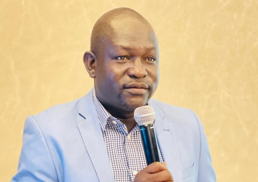Each year on 21 May, the world observes the World Day for Cultural Diversity for Dialogue and Development, a day set to recognize the richness of human cultures and the essential role diversity plays in achieving peace and sustainable development. As South Sudanese, this day offers us more than a symbolic reflection. It offers us an opportunity to confront a fundamental question: Are we building a nation that embraces its diversity, or one that continues to fear it?
South Sudan is one of the most culturally diverse countries in Africa. With over 60 distinct ethnic groups, each with its language, customs, and heritage, our identity is inherently plural. Yet, our national discourse has too often been dominated by a narrow vision of unity, one that confuses uniformity with cohesion, and silence with peace.
The truth is that this diversity, when nurtured through dialogue and mutual respect, is not a threat to unity. It is the very foundation of it. In the context of development, cultural diversity is a powerful asset. Traditional knowledge systems, indigenous farming practices, conflict mediation methods, and oral storytelling carry immense value for local solutions to national challenges. Whether we are addressing food insecurity, climate change, youth unemployment, or reconciliation, we cannot afford to ignore the cultural resources embedded within our communities.
Unfortunately, development strategies in South Sudan are often designed and implemented through a top-down, one-size-fits-all approach that ignores the rich contextual nuances of our local cultures. This contributes to project failures, deepens mistrust, and reinforces the perception that national policies are disconnected from the people they are meant to serve.
To truly advance development, we must recognize that culture shapes how people understand justice, health, education, and governance. Without cultural sensitivity, dialogue becomes imposition, and development becomes a dream.
Cultural dignity is not only about romanticizing tradition but is about ensuring that no group feels invisible, no language is erased, and no cultural identity is treated as inferior or expendable. In our fragile post-conflict state, where intercommunal tensions remain high, dialogue cannot happen in a vacuum. It must be grounded in mutual recognition.
As scholars have often said, “True peace is not merely the absence of war, it is the presence of justice and the full recognition of our diverse cultural identities.” Our political institutions, education systems, and media platforms must reflect this pluralism. Children should be able to learn in their mother tongues. Traditional leaders and elders should be respected as partners in justice and peacebuilding. The stories and songs of all communities should be celebrated, not only in festivals, but also in national policy.
I am rooted in the defense of civic space and the promotion of human rights. But rights are not abstract; they are lived through culture. When cultural groups are denied space, when indigenous practices are dismissed as backward, when civil society actors promoting cultural inclusion are silenced, we are not only violating rights, but also undermining peace.
In this Diversity Day, I call on the Government of South Sudan to go beyond rhetoric and take concrete steps through:
Recognize and protect minority languages by incorporating them into education, media, and public life. Cultural and linguistic diversity is a source of pride, but without formal recognition, many minority languages are at risk of extinction. When children are only taught in unfamiliar languages, they face steep barriers to learning and self-expression. Integrating local languages into early education curricula helps improve literacy, cultural confidence, and access to rights.
Moreover, local radio and media should be empowered to broadcast in a wider range of languages. This will ensure that all communities can access public information, especially during emergencies, civic events, and national consultations.
Support community-led cultural dialogue platforms that promote reconciliation, particularly in states affected by intercommunal conflict. Elders, women’s groups, youth leaders, and spiritual figures have long played a role in mediating disputes and rebuilding trust after violence. These grassroots structures, however, are often underfunded, unrecognized by the state, or sidelined in formal peace processes.
Support inclusive, community-led cultural dialogue forums where conflict drivers are addressed in culturally relevant ways; this can reduce tensions, restore trust, and bridge political and ethnic divides.
Integrate cultural knowledge systems into national development plans, especially in health, agriculture, and environmental policy. Indigenous knowledge, such as traditional medicinal practices, farming methods adapted to local ecosystems, and resource-sharing customs which has helped communities survive for generations. For instance, in the face of climate shocks and food insecurity, government agencies should collaborate with pastoralists and farmers to preserve sustainable land use practices, traditional seed varieties, and water-sharing norms.
Conclusively, to create a peaceful and inclusive South Sudan, we must honor the full diversity of our people. This means not erasing our differences but learning from them, respecting them, and ensuring every cultural group feels seen and valued.
Our shared duty as South Sudanese is to reject division and fear. Let’s commit to turning diversity into dialogue, and dialogue into meaningful development.
The road ahead will be challenging. But with honesty, courage, and fairness, we can build a future where all South Sudanese belong, and where our diversity becomes not a source of conflict, but a foundation for lasting peace.
The author, James Bidal, is passionate about defending Human Rights and is a researcher. He can be reached via email at goodbidal@gmail.com
The views expressed in ‘opinion’ articles published by Radio Tamazuj are solely those of the writer. The veracity of any claims made is the responsibility of the author, not Radio Tamazuj.




